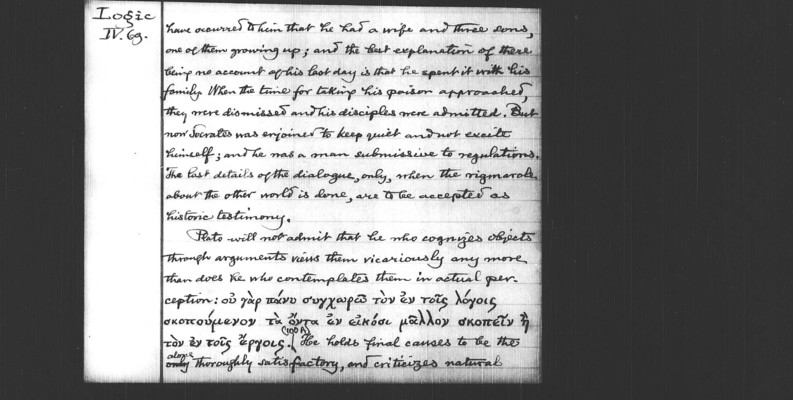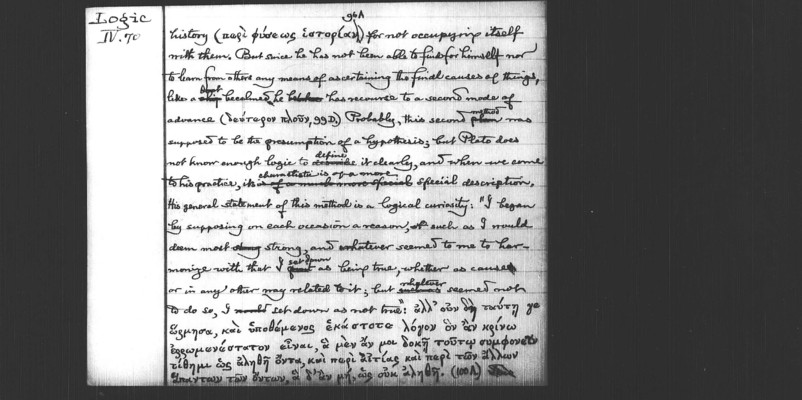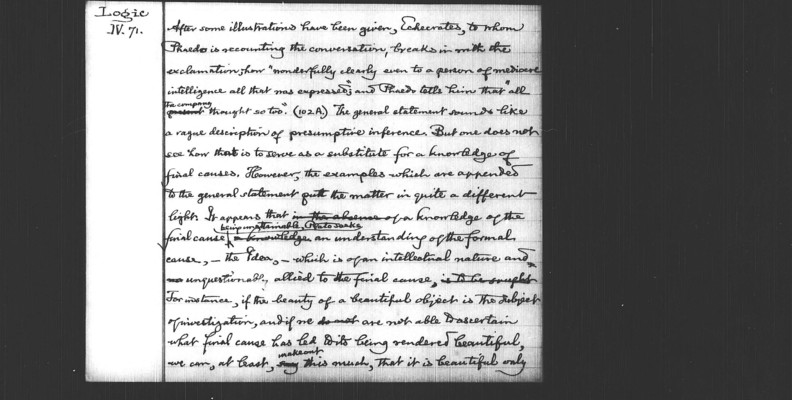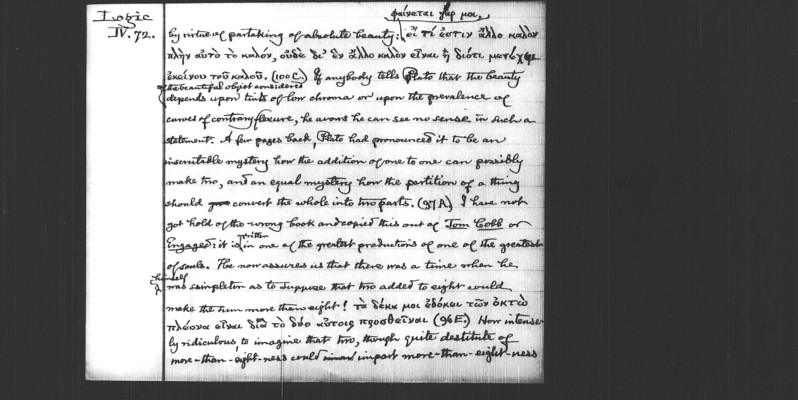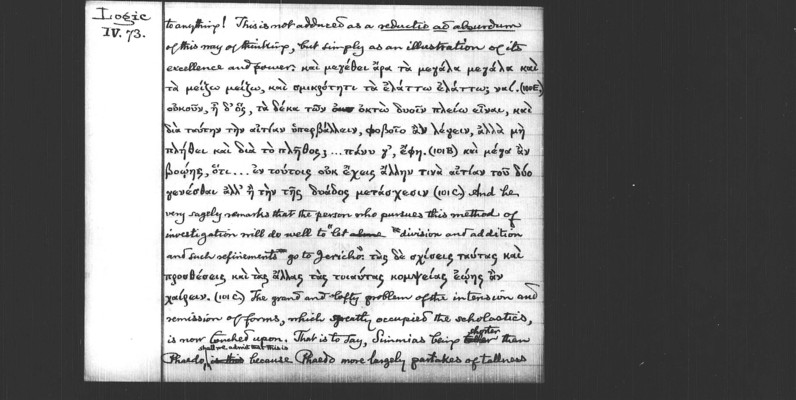Pages
61
Logic IV. 69 have occurred to him that he had a wife and three sons one of them growing up and the best explanation of there being no account of his last day that he spent with his family. When the time for taking his prison approached they were dismissed and his disciples were admitted. But now Socrates was enjoined to keep quiet and not excite himself and he was a man submissive to regulations. The last details of the dialogue only when the rigmarole about the other world is done are to be accepted as historic testimony. Plate will not admit that he who cognizes objects through arguments views then vicariouslu any more than does he who contemplates them in actual perception.: [foreign text]. He holds final causes to be the alone thoroughly satisfactory and criticizes natural
62
Logic IV. 70 history [foreign text] for not occupying itself with them. But since he has not been able to find for himself nor to learn from others any means of ascertaining the final causes of things like a be calmed he has recourse to a second mode of advance [foreign text]99D. Probably this second method was supposed to be the presumption of a hypothesis but Plato does not know enough logic to define it clearly and when we come to his practice its characeterstic is of a more special description. His general statement of this method is a logical curiosity: I began by supporting on each occasion a reason such as I would deem most strong and whatever seemed to me to harmonize with that I set down as being true whether seemed not to do so I set down as not true [foreign text]
63
Logic IV 71 After some illustrations have been given Echecrates to whom Phaedo is recounting the conversation breaks in with the exclamation how "wonderfully clearly even to a person of mediocre intelligence asll that was expressed" and Phaedo tells him that all the company thought so too. (102A.) The general statement sounds like a range of description of presumptive inference. But one does not see how that is to serve as a substitute for a knowledge of final causes. However the examples which are appended to the general statement put the matter in quire a different light. It appears that a knowledge of the final cause being unabttainable Plato seeks an understanding of the formal cause, the idea which is of an intellectual nature and unquestionably allied to the final accuse. For instance if the beauty of a beautiful object is the subject of investigation and if we are not able to ascertain what final cause has led to its being rendered beautiful we can at least makeout this much, that it is beautiful only
64
Logic IV. 72 by virtue partaking of absolute beauty [foreign text]100C. If anybody tells Plato that the beauty of the beautiful object considered depends upon tints of low chroma or upon the prevalence of curves of contrary flexure, he avows he can see no sense in such a statement. A few pages back Plato had pronounced it to be an inscrutable mystery how the addition of one to one can possibly make two and an equal mystery how to partition of a thing should convert the whole thing into two parts. (97A.) I have not got hold of the wrong book and copied this out of Tom Cobb or Engaged it is written in one of the greatest productions of one of the greatest of souls. He now assures us that there was a time when he himself was simpleton as to suppose that two added to eight would make the sum more than eight! [foreign text] 96E. How intensely ridiculous to imagine that two though quite destitute of more than eight ness could impart more than eight ness
65
Logic IV. 73 to anything! This is not adduced as a reductio ad absurdum of this may of thinking but simply as an illustration of its excellence and power. [foreign text]101C. And he very sagely remarks that the person who pursues this method of investigation will do well to let division and addition and such refinements go to Jericho [foreign text] 101C. The grand and lofty problem of the intension and remission of forms which greatly occupied the scholastics is now touched upon. That is to say Simmias being shorter than Phaedo shall we admit that this is because Phaedo more largely partakes of tallness
